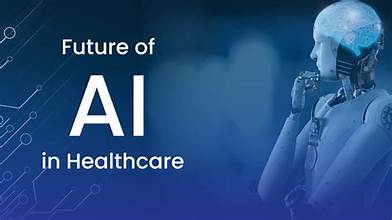
As we stand on the cusp of a new era, artificial intelligence (AI) is poised to redefine the landscape of technology and society. Cutting-edge research in AI is not just advancing our current capabilities but is also laying the groundwork for groundbreaking innovations that will shape tomorrow’s technologies. In this article, we will explore how the latest developments in AI research are driving this transformation, focusing on key areas such as generative models, reinforcement learning, and ethical AI.
1. Generative Models: The Frontier of Creativity
Generative models, particularly Generative Adversarial Networks (GANs) and Variational Autoencoders (VAEs), represent one of the most exciting advancements in AI. These models are capable of creating new data instances that resemble real-world examples. For instance, GANs have been used to generate realistic images, videos, and even music, demonstrating AI’s potential in creative domains.
Key Impacts:
- Art and Design: AI-generated art is pushing the boundaries of traditional creativity. Artists and designers are leveraging generative models to explore new aesthetics and concepts, resulting in innovative artworks and design solutions.
- Content Creation: Automated content generation for media and marketing is becoming increasingly sophisticated. AI can now produce text, video, and audio content that is not only coherent but also highly engaging.
2. Reinforcement Learning: Training AI Through Experience
Reinforcement learning (RL) is a branch of machine learning where agents learn to make decisions by interacting with their environment. Unlike supervised learning, where models are trained on labeled data, RL involves learning through trial and error. This approach is crucial for developing AI systems that require real-time decision-making capabilities.
Key Impacts:
- Autonomous Vehicles: RL algorithms are at the heart of the development of self-driving cars. By simulating various driving scenarios, these systems can learn to navigate complex environments safely and efficiently.
- Robotics: In robotics, RL is enabling robots to perform complex tasks in unstructured environments. This includes everything from assembling products to performing intricate surgeries.
3. Ethical AI: Navigating the Moral Landscape
As AI technology advances, so does the need to address ethical considerations. Researchers and policymakers are increasingly focused on developing frameworks to ensure AI systems are used responsibly and fairly. This includes addressing issues related to bias, privacy, and transparency.
Key Considerations:
- Bias and Fairness: AI systems can inadvertently perpetuate or even amplify biases present in training data. Ongoing research aims to develop techniques for identifying and mitigating these biases to ensure fair outcomes across different demographics.
- Privacy: With the growing use of AI in personal and sensitive contexts, safeguarding user privacy is paramount. Researchers are exploring methods such as federated learning and differential privacy to protect individual data while still enabling effective AI training.
4. AI in Healthcare: Revolutionizing Medical Solutions
The application of AI in healthcare is transforming diagnostics, treatment, and patient care. Cutting-edge research is driving innovations in various areas:
Key Applications:
- Diagnostics: AI-powered diagnostic tools are improving accuracy and speed in detecting diseases such as cancer and cardiovascular conditions. Machine learning models can analyze medical images and genetic data to identify patterns that may be missed by human clinicians.
- Personalized Medicine: AI is enabling the development of personalized treatment plans based on individual patient data. This approach ensures that therapies are tailored to the specific needs of each patient, enhancing treatment efficacy.
5. Quantum AI: The Next Frontier
Quantum computing represents a significant leap forward in computational power. When combined with AI, quantum computing has the potential to solve complex problems that are currently intractable for classical computers.
Key Developments:
- Speed and Efficiency: Quantum computers can perform certain types of calculations exponentially faster than classical computers. This could lead to breakthroughs in areas such as cryptography, optimization, and drug discovery.
- AI Integration: Researchers are exploring how quantum algorithms can enhance machine learning processes, potentially leading to more powerful and efficient AI models.
Conclusion
The future of AI is being shaped by a blend of cutting-edge research and technological innovation. Generative models, reinforcement learning, ethical AI considerations, advancements in healthcare, and the promise of quantum computing are all contributing to the evolution of AI technologies. As these areas continue to develop, they will not only enhance our current capabilities but also unlock new possibilities, transforming industries and improving lives in ways we are just beginning to imagine.













